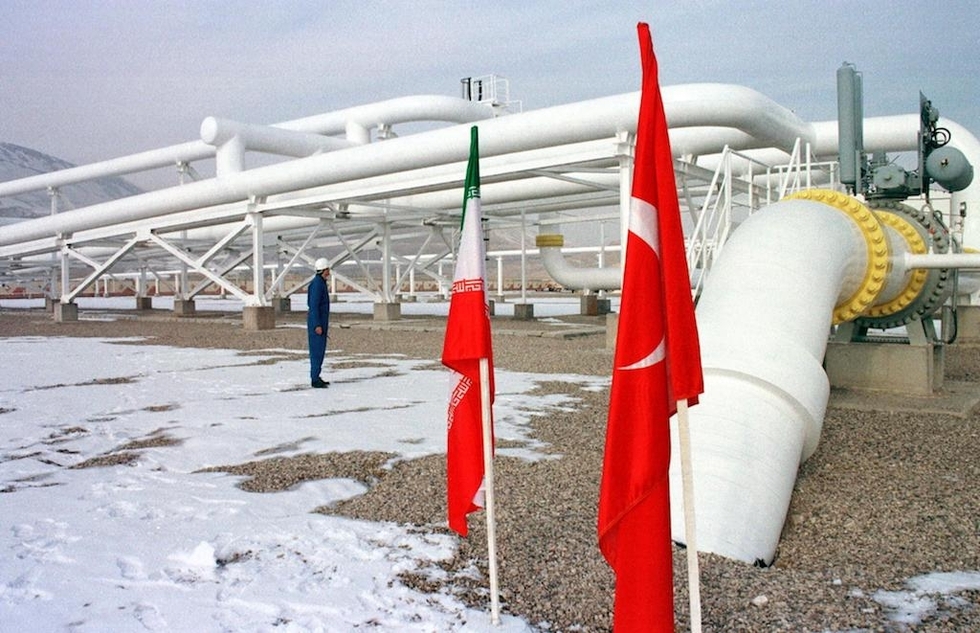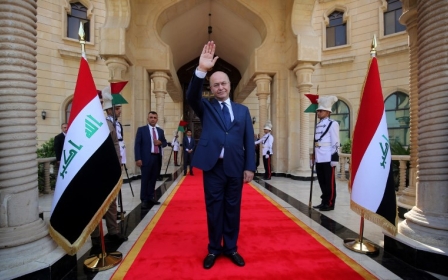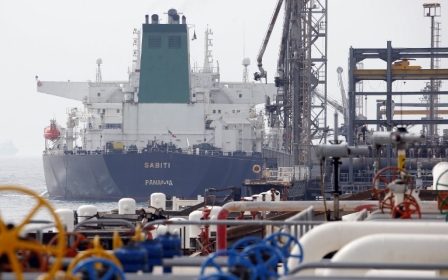Turkey and Iraq to get exemptions from US sanctions on Iran: Officials

Turkey and Iraq will receive exemptions from US sanctions on Iran when they come into force on Monday, according to officials from both countries.
Three Iraqi officials said on Friday that the US has informed Baghdad it will be allowed to keep importing crucial gas, energy supplies and food items from Iran after Washington reimposes sanctions on Tehran's oil sector, according to Reuters.
The waiver is conditional on Iraq not paying Iran for the imports in US dollars, said the officials, including a member of Iraq's ministerial committee that oversees energy activities.
Iraq is among eight Iranian oil importers expected to receive waivers to bypass the upcoming sanctions.
US Secretary of State Mike Pompeo, who announced the decision on Friday, did not identify the eight, which he referred to as "jurisdictions," a term that may include importers such as Taiwan which the US does not regard as a country.
Pompeo said Washington decided to issue the temporary waivers "only because they have demonstrated significant reductions in their crude oil and cooperation on many other fronts". Under US law, such exceptions can only be granted for up to 180 days.
The US sanctions on Iran are part of US President Donald Trump's effort to force Tehran to curb its nuclear and missile programmes.
In May, the Trump administration pulled out of the 2015 nuclear deal that Iran signed with world powers, under which it agreed to curb its nuclear programme in exchange for the lifting of international sanctions.
Since that time, the US president and key officials within his administration have repeatedly voiced their opposition to negotiating with Tehran, a position that pits Washington against several of its key European allies, which remain committed to the 2015 agreement.
Companies that buy Iranian crude after the sanctions take effect may be cut off from the US financial system.
The ministerial committee official said Iraq's finance ministry had set up an account with a state-run bank in which Baghdad would deposit the amounts owed to Iran for the imports, in Iraqi dinars.
Turkey welcomes waiver, too
Turkey's energy minister also said on Friday that his country had been granted an exemption from the sanctions.
"We always stated that such sanctions could negatively impact peace, stability and economies in neighbouring countries like Turkey and we elaborated this reality during the talks with US officials," said Turkish Energy and Natural Resources Minister Fatih Donmez, according to the country's state-run Anadolu news agency.
Turkey imports almost almost half of its oil from neighbouring Iran.
On Friday, US Treasury Secretary Steven Mnuchin also said the US told the Brussels-based SWIFT financial messaging service that it was expected to disconnect all Iranian financial institutions that the US plans to blacklist as of Monday. He declined to specify the targeted institutions.
Iran said it was not troubled over the re-imposition of US sanctions.
"America will not be able to carry out any measure against our great and brave nation ... We have the knowledge and the capability to manage the country's economic affairs," Iran's Foreign Ministry spokesman, Bahram Qasemi, told state television.
Last month, Iran's foreign minister, Javad Zarif, accused Washington of being "addicted" to sanctions.
The "US addiction to sanctions is out of control," Zarif wrote on Twitter.
His comments came after the US Treasury announced sanctions on a network of businesses it said were tied to the Basij Resistance Force, a group that the department said works with Iran's Islamic Revolutionary Guard Corps.
Bank Mellat, Mehr Eqtesad Bank, Mehr Eqtesad Iranian Investment, Iran Tractor Manufacturing and Esfahan's Mobarakeh Steel were among the firms subject to those sanctions.
Middle East Eye propose une couverture et une analyse indépendantes et incomparables du Moyen-Orient, de l’Afrique du Nord et d’autres régions du monde. Pour en savoir plus sur la reprise de ce contenu et les frais qui s’appliquent, veuillez remplir ce formulaire [en anglais]. Pour en savoir plus sur MEE, cliquez ici [en anglais].




